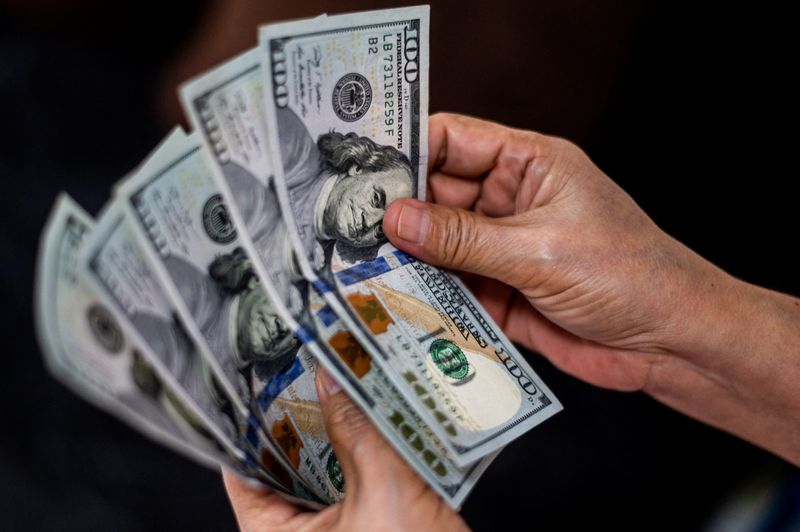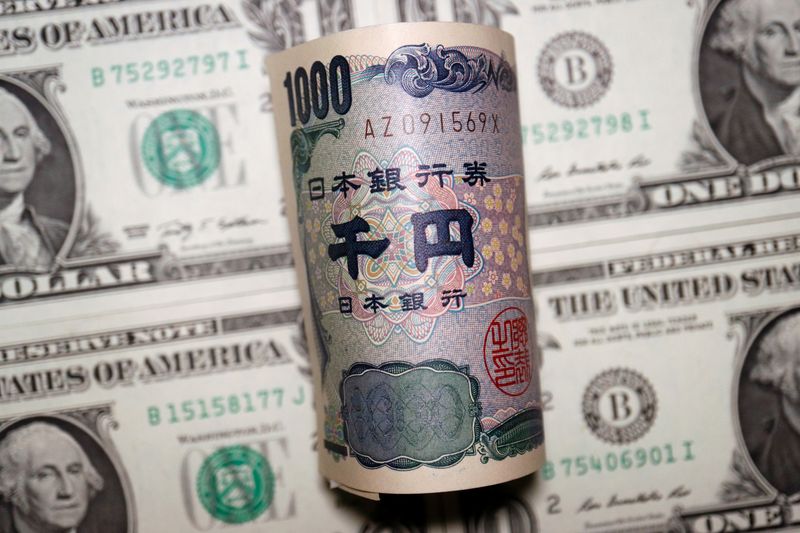By Saqib Iqbal Ahmed
NEW YORK (Reuters) - The U.S. dollar rose against most major peers on Thursday after U.S. data pointed to labor market strength that could keep the Federal Reserve hawkish for longer.
The number of Americans filing new claims for unemployment benefits increased less than expected last week, pointing to a still-tight labor market, while the economy rebounded faster in the third quarter than previously estimated.
Labor market resilience is keeping the U.S. central bank on its aggressive policy-tightening campaign, with the Fed last week projecting at least an additional 75 basis points of increases in borrowing costs by the end of 2023. It has hiked its policy rate by 425 basis points this year from near zero to a 4.25%-to-4.50% range, the highest since late 2007.
"The dollar is gaining as this morning’s stronger-than-forecast data lifts rate expectations for the new year," said Karl Schamotta, chief market strategist at business payments company Corpay.
"There’s still no evidence the Federal Reserve’s rate hikes have delivered the 'sustained period of below-trend growth' that policymakers — and many market participants — had anticipated, making it more likely the central bank will be forced to tighten further," Schamotta said.
The euro was 0.15% lower against the U.S. dollar at $1.05905, after having risen as high as 0.5% earlier in the session.
Meanwhile, the dollar was about flat against the yen at 132.49 yen, not far from the four-month low of 130.58 yen touched on Tuesday after an unexpected tweak to the Bank of Japan's bond-yield controls spurred bullish yen bets.
The greenback has so far failed to meaningfully recoup the 3.8% slump that followed Tuesday's news.
"The yen has significant room to appreciate from here," said Michael Brown, an analyst at Trader X.
"I think dollar-yen has scope to move back towards the mid-120s, around 125 or 126, as the BOJ becomes more hawkish, and also as markets continue to doubt what we're hearing from the Fed," Brown added.
Sterling fell to a fresh three-week low and was down 0.44% at $1.20315 after data showed the British economy contracted slightly more than expected.
The ruble clawed back some of this week's hefty losses after sinking to a near eight-month low in a volatile session, as the prospect of a favorable month-end tax period mitigated concerns about Western sanctions on Russian oil and gas. The dollar was down about 2.9% against the ruble at 68.95.
Russia will start buying yuan on the currency market next year if oil and gas revenues meet expectations, two sources said, opening a new front in an accelerating de-dollarization drive designed to reduce its dependency on Western finance.

The dollar was at a one-week high against the offshore yuan on Thursday.
Meanwhile, bitcoin was 1.02% lower at $16,652 as cryptocurrencies continued to nurse sharp losses following the high-profile collapse of crypto exchange FTX.
